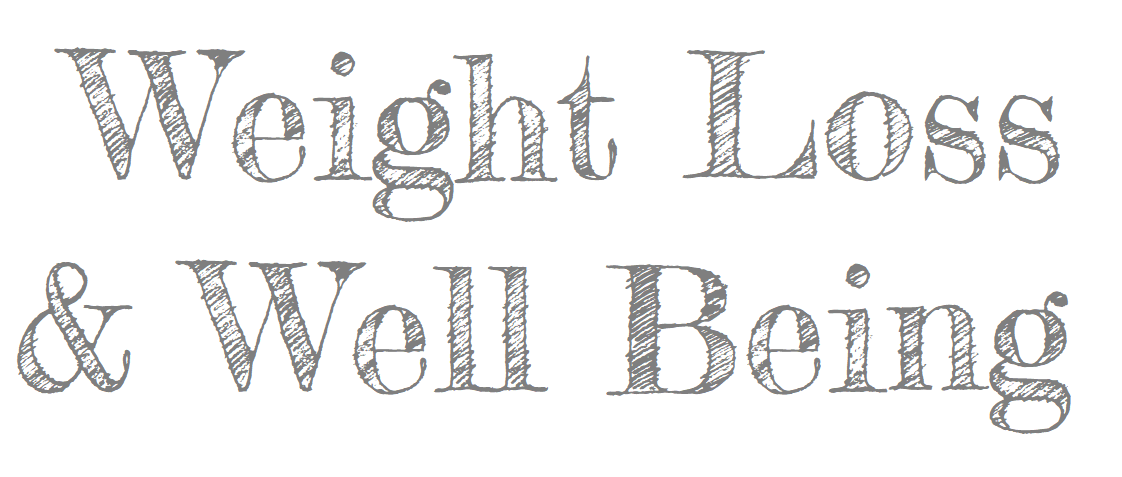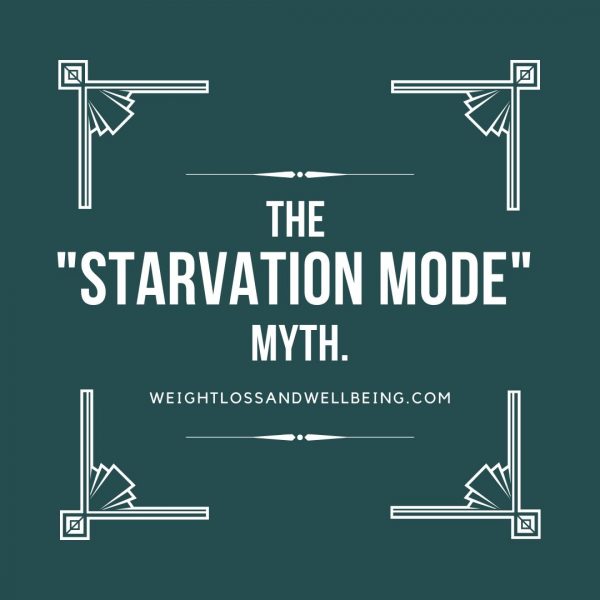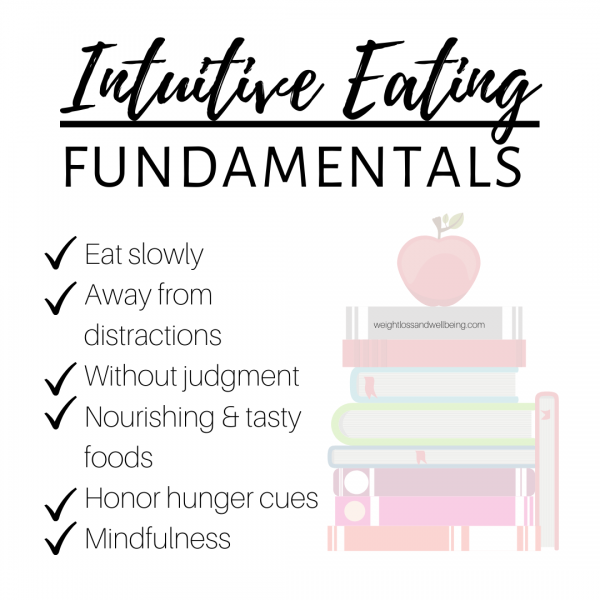Truth: Starvation Mode is a myth. But there is a lot of nuance to understanding your metabolism, and specifically how weight loss can change and affect it.
I’m sure you’ve heard all sorts of scary things about calorie deficits causing “starvation mode” or “metabolic damage.” Lately, some people have latched onto this concept and use it as a reason to avoid losing weight. But, it is because they do not understand what the metabolism is and how it changes due to weight loss.
The supposed fear is that if you “starve” your body with a calorie deficit, it’s first reaction will be to stop burning calories. Thereby preventing you from losing weight. It is also a common argument against the efficacy of calorie deficits. But it is a very reductive and oversimplified method of understanding metabolic function.8

Long story short.
Your metabolism does slow down as you lose weight. But not because you are causing damage. It is slowing down because you are now a smaller person, that needs less energy, and your body is naturally readjusting your metabolism to match your new body size. This is a healthy response to losing weight.

However, this can also be the mechanism by which people quickly regain weight they have worked hard to lose.
If you crash diet (use an extreme calorie deficit) and eat very few calories in order to lose weight quickly, you will regain every pound as soon as you stray from those restrictive eating habits.
Returning to the same eating habits as when you were heavier, you will inevitably be eating too many calories and regain.
What is a metabolism?
Your metabolism is the process that your body uses to convert food to energy. Doing this quickly and efficiently means that you have a “fast metabolism.” The opposed would be a “slow metabolism.”
Someone who does not have as high of a metabolism does not process as much energy, therefore a few more calories may be stored as fat.
It is true that the rate of metabolism varies from person to person, and some have a quicker metabolism than others. However, the at most 5% difference is almost negligible. A 5% variation would only account for around 100 calories a day for most. Therefore it does not make a significant difference in losing or maintaining weight.
There are a few more factors that contribute to whether you have a “fast” or “slow” metabolism. Including, your average activity level, which varies greatly between people. Some people are naturally more fidgety and move more than others.
Overall, the variation in metabolic rate between individual people is very small. A “slow metabolism” can easily be combated with an extra bit of activity each day.
Calorie deficits and “starvation mode.”
Dramatic calorie deficits or crashing dieting is a bad idea and over a very long period of time can have a negative effect on your rate of metabolism.
However, a prolonged moderate calorie deficit will never make you go into “starvation mode” or cause “metabolic damage.” Drastically cutting calories (usually anything over 1000 calories/day) and maintain that extreme deficit over months, you may start to effect your metabolism.
There are certain situations however where an extreme calorie deficit is used under doctor supervision. The TV show the Biggest Loser is on of these situations. There are other examples like Weight Loss Surgery diets and methods that promote drastic calorie deficits.
There are times when these extreme diets can cause a metabolic slowdown that effects their ability to maintain or continue to lose weight.

Adaptive Thermogenesis not “starvation mode.”
As you lose weight your metabolism does start to change and adapt. But it is not adapting to starvation. It is adapting to your new smaller body weight and energy demands. As your body shrinks you do not need as much energy to function.

Adaptive Thermogenesis is your body’s natural scaling back of your energy expenditures. It is a natural response to moderate weight loss.
However, if you used extreme weight loss methods and crash diets, this will be a far more significant scaling back. Our body used this to keep us alive during times of famine, but in our modern food environment, this is unnecessary.
We no longer face times of prolonged famine. In fact, Americans don’t really know what “starving” is. It is not skipping a meal or two. It is not even skipping an entire day’s worth of meals. Research is starting to show the huge benefits of prolonged fasts, which last from 1-3 days.
Even three days of fasting would not be enough to push your body into adaptive thermogenesis to a degree that would effect your rate of weight loss.
Intentionally skipping meals by fasting, also known as intermittent fasting, can have very positive benefits. Forcing yourself to skip meals in an effort to reduce your calorie intake is not an effective means of long term weight loss. If you are denying yourself food, you will likely make up for it later with a binge or large portion of food. This is a slippery slope to binge eating: withhold food, overeat, feel guilt for overeating, withhold food, overeat, etc. And the cycle continues.
If you would like to learn more about the health benefits of fasting please visit one of my favorite researcher’s Dr. Panda at the Salk Institute.
Support a healthy metabolism.
As you age, your metabolism will naturally slow down to a small degree. You simply don’t need as much energy as you once did.
Losing weight, suffering from chronic diseases, or even constant high levels of stress can negatively impact your metabolism and cause your body to reduce the amount of energy you burn on a day to day basis.
So it is very important to maintain a healthy metabolism. Luckily there are few healthy habits to support your metabolic health.

It is so important to stay active. Whatever way you prefer to be active, is the best for you. Try to incorporate as much walking as possible. And utilizing resistance training and lifting weights has a particular stimulating effect on your metabolism. Muscle uses more energy than fat, so the more muscle you have the more energy your body needs. Which means your metabolic rate will increase with muscle development.
Protein is also very important to building more muscle and maintaining your existing muscle. During a prolonged calorie deficit you will inevitably lose muscle mass. Age also contributes to natural muscle loss. So make sure to monitor your protein intake for your needs.
There are also several different calorie cycling techniques that can be used during weight loss. The basic concept is to use a higher deficit on one day and a lower on the next, so that your average deficit throughout the week stays the same. Many people see mental and physical benefit in cycling their deficit to give themselves a break from slight restriction.











